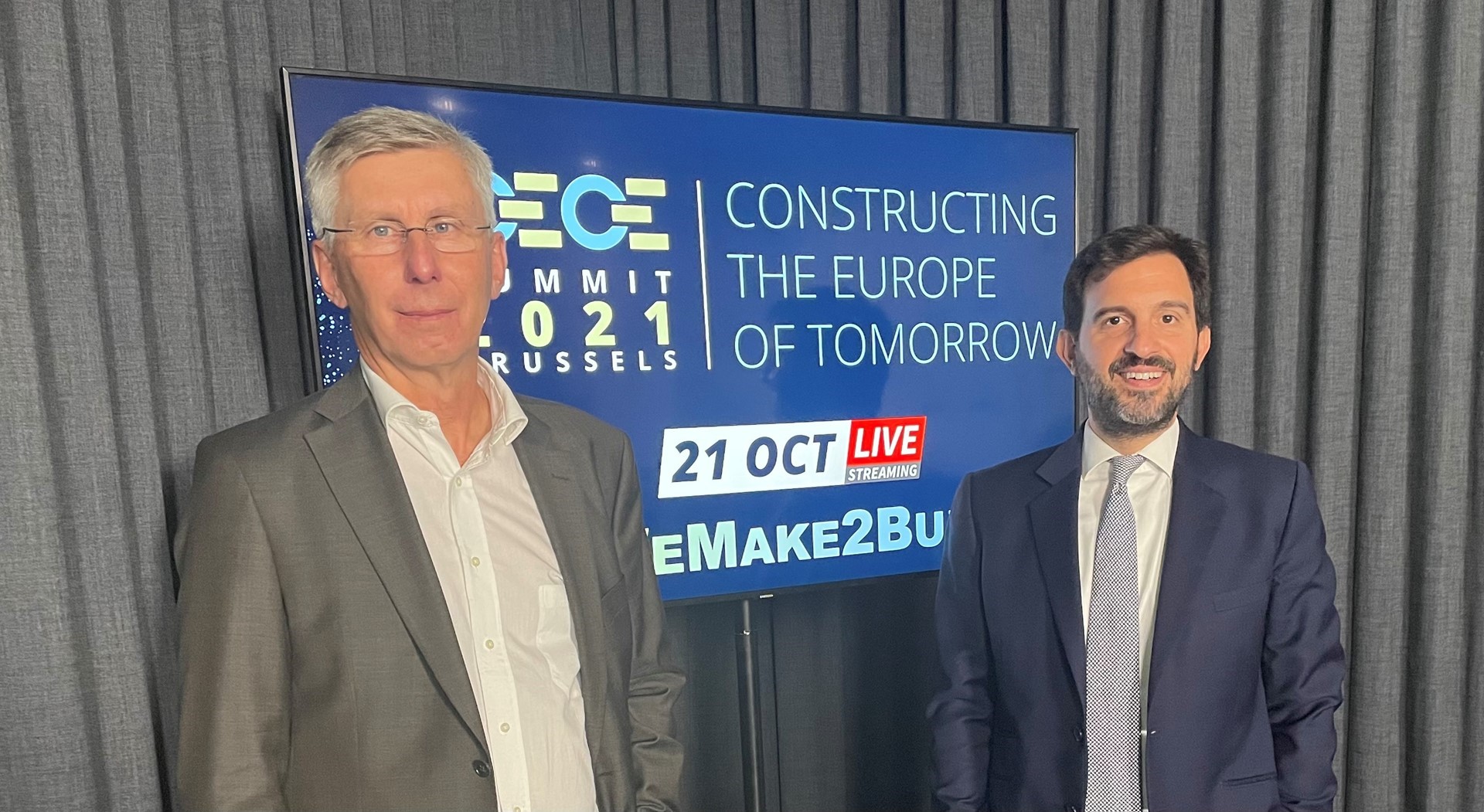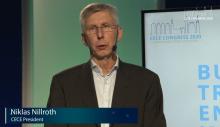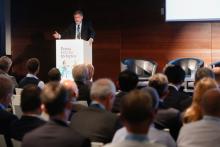
Speaking during the online event held by construction equipment association CECE on October 21 Chris Sleight, MD of Off-Highway Research (OHR), said that the construction equipment market is now (2021) in its fourth year of very high volumes, and added that this could continue through to 2025.
Global construction equipment sales are expected to reach 1.13 million units this year, some 2% higher than the previous record of 1.11 million machines, which was achieved in 2018.
The global market excluding China posted a less-than-expected 12% sales decline in 2020 following the onset of the pandemic. A strong market rebound this year is taking the market back up to the pre-Covid sales level and the increase is set to continue over the medium-term.
Low interest rates and the number of white collar employees working from home since the pandemic struck have helped boost the residential housing markets and therefore the demand for construction equipment and materials.
However, shortages in materials such as cement and timber following the pandemic have impacted construction activity. Sleight added that issues in the supply and transport chains following the pandemic have meant that manufacturers have often struggled to source components and to get machines to the end-customer.
"The result of that is that the supply of machines is far below the demand...in the marketplace," said Sleight. "Even though we are seeing a record year this year, it could have been much much higher if that demand could have been met."
Sleight said that, although the medium-term outlook for construction equipment beyond 2022 is good, it depends on government policies and on resisting the urge to go into austerity mode too early and too harshly.
The CECE Summit 2021 also took a deep dive into future scenarios of jobsites and looked at innovations in connected industries.
The image of construction equipment is changing towards a modern and digitalised industry, which will be crucial in building the Europe of tomorrow and wants to attract the younger generations. This has an impact on leadership and company structure as diversity also plays a more important role and women will become stronger and more visible in this technical environment.
“Constructing the Europe of tomorrow is our joint mission – your machines quite literally help build our future,” said Gerassimos Thomas, director-general for taxation and customs union, European Commission. "In our motto #WeMake2Build lies the awareness that safe, efficient, sustainable and innovative machines are fundamental pieces of the puzzle to shape and build the Europe of tomorrow," said Niklas Nillroth, CECE president, welcoming the hundreds of participants to the online hybrid event.
This implies that digitalisation, automation, construction machinery operated with synthetic fuels and new drive concepts will move further and determine the new image of the industry. It also implies that job qualifications will change to higher levels in some regards and attract younger people to find their future in a surrounding with artificial intelligence, digital twins and digitalised production processes.
Moreover, not only job descriptions but also leadership and company structures will change. Due to the lack of skilled workers and the demographic development – Europe is aging quickly – women will have a further role to play in technical professions and leadership positions within construction. “Creating change in an industry that has stagnated for more than 30 years is crucial in order to attract diverse workforce towards construction,” emphasised Maria Bøhnke, project manager at Boss Ladies during the panel discussion on diversity and leadership. In the same session, Nadim Penser, SVP of human resources at Epiroc, showed how companies can lead by example and commit to improving diversity in leadership roles and at all levels of the workforce.
A further focus of the summit was the impact of revised legislation on machinery. CECE’s reality check, delivered by Liebherr’s Eugen Schobesberger, of the European Commission’s proposal for a Regulation on Machinery Products found that it will bring further economic burden and unnecessary bureaucracy. An instant poll during the event supported this assessment with the majority of respondents fearing increased financial and administrative burdens for European manufacturers.
Svenja Hahn, member of the European Parliament and shadow rapporteur of the Renew Europe Group for the AI regulation and the Machinery products regulation, underlined the relevance of the EU machinery sector. She stressed how she commits to regulation that stimulates innovation, to limit red tape and disproportionate burdens. The discussion around the Machinery Products Regulation is a clear example of how higher safety can be better delivered by strengthened market surveillance, rather than third-party certification. MEP Hahn concluded by sharing her confidence that the Parliament will improve the Commission’s proposal of the regulation.









